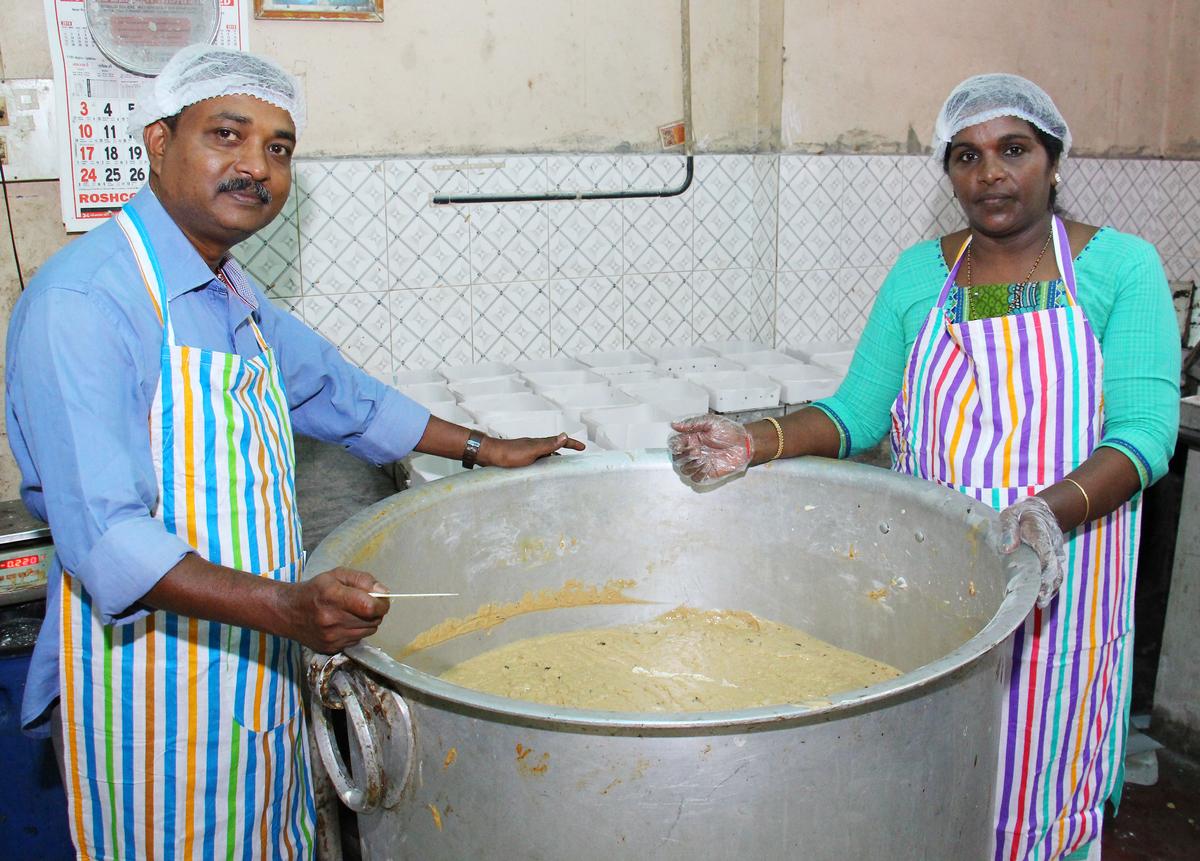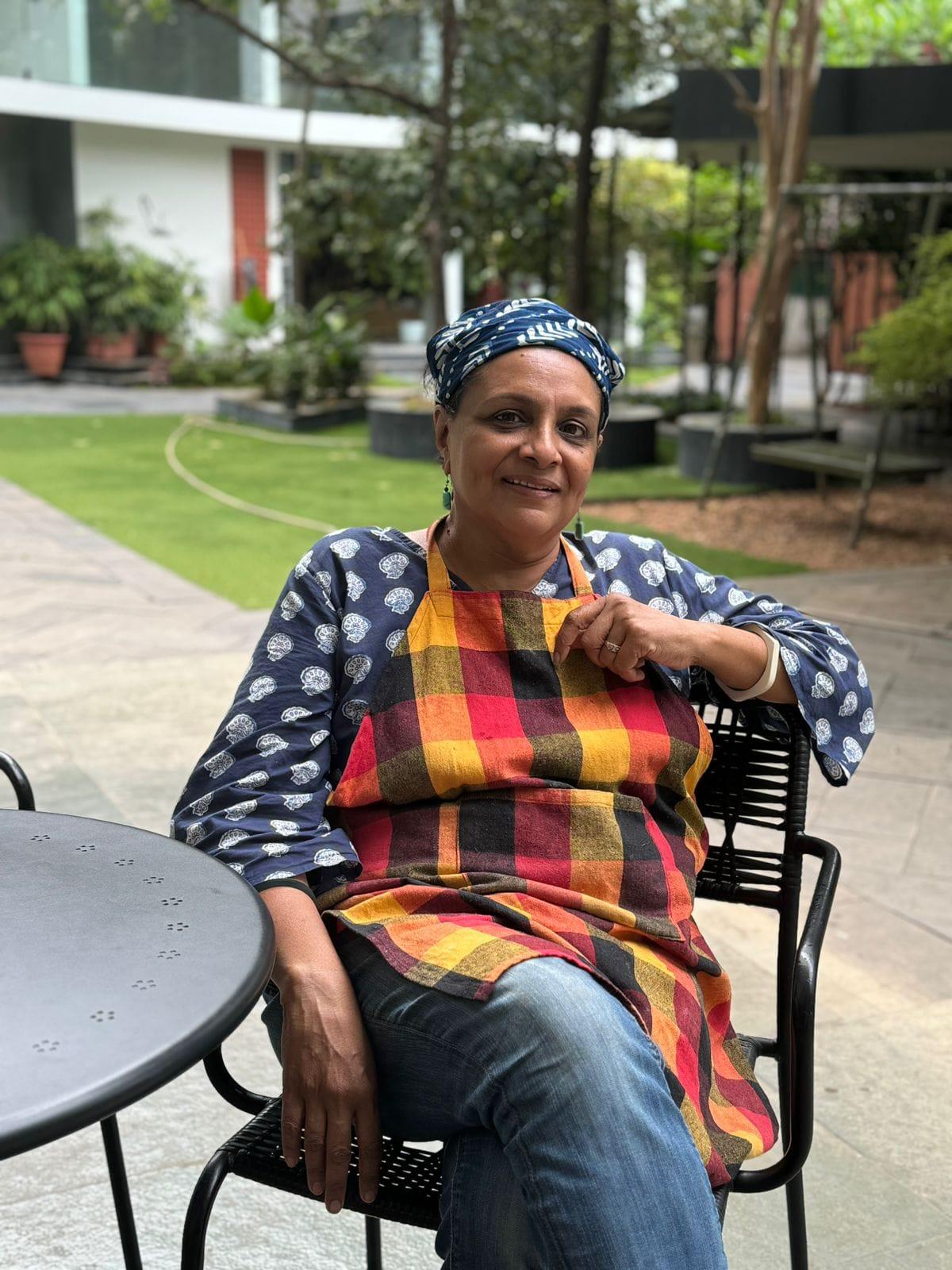[ad_1]
A cake baked in a borma (a traditional coconut shell-fired oven) is the stuff of nostalgia. People from a generation or two ago, when cakes were not as widespread, fondly remember them. Bakeries were few and far between, and those primarily baked bread. Kochi-based baker Tsarina Abrao Vacha’s great-great-grandfather, Ignatius Rozario, is said to have baked the first loaf of bread in Kerala sometime in the early 1850s. He set up a bakery in Kochi called Rozario’s Bakery, one of the first such in Kerala. Baking is said to have been introduced in Kochi, like in Goa, by the Portuguese.
A borma is a coconut-shell-fired oven, traditionally used in bakeries in Kerala before the arrival of electric ovens. Tsarina says her memories of the borma during Christmas time are not uni-dimensional. “What I feel is two dimensional — a warm feeling — the fragrance of baking cakes with the temperature of the borma. That is how I remember it,” says Tsarina, an architect, who refers to herself as a fifth-generation baker. She remembers the “humungous pile” of coconut shells at Rozario’s that would be used to fuel the borma. Rozario’s, on Broadway, shut shop in 1988.
While the borma is set to becoming a relic of the past, a handful of old-school bakers still bake bread and cakes the old-fashioned way. One such is St Joseph’s Bakery, Kumbalangi near Kochi.
Cakes ready to be loaded into the borma at St. Joseph’s Bakery
| Photo Credit:
THULASI KAKKAT
Watching the flames inside a borma dance as they swallow coconut shells is mesmerising. The cave-like insides of the 8×6 foot borma at St Joseph’s Bakery, Kumbalangi, are a flickering orange, showing the bricks that line its walls. In the next half an hour, the coconut shells are reduced to simmering embers. After clearing the residue, 73-year-old Xavier George and his son, Joseph Shibu, load over 70 parchment paper-lined loaf tins filled with plum cake batter inside, using a long-handled peel. A relative, Baby Shaju, helps prepare the batter and ready the baking tin. George has been doing this every Christmas, since 1979.
George, the proprietor of the bakery, who did not shift to electric ovens, swears by the borma, saying he prefers to use it because he does not have to rely on electricity and “plenty of coconut shells are available.”
It is hot near the borma, which is on one part of the L-shaped room lined by metal sheet-topped tables on which are arranged neat rows of freshly-baked bread and bun. “This heats the borma also. We add the shells of 70 coconuts to bake one load of 70 cakes. The cakes will be ready in two hours,” says Shibu who has been helping his father since he was 18.
An aroma of baking bread combined with a hint of spices hangs in the air. Starting as a teenager, George worked in bakeries in Fort Kochi, Edavanakkad and Thoppumpady. “I used to knead the dough for bread, that is how I picked up the trade. Then I watched and learnt. Those days all these places had bormas, and everything was done by hand; there was hardly any machinery involved. We also make cupcakes, buns and cookies, but bread and cake are in most demand during the Christmas season.” These are sold in one-kilogram and half-kilogram packages and slices too. These are priced ₹360 for a kilogram (₹420 with Royal icing) and ₹180 for half-kilogram (₹210 with icing).
Xavier George is probably one of the few bakers in Kochi using a borma. His other specialities are bread and bun, which are extremely popular during the Christmas season.
| Photo Credit:
THULASI KAKKAT
His customers include organisations and individuals who want to gift cakes . George does not use alcohol, he uses orange wine instead to soak the dried and candied fruits overnight. “Since we don’t want to take a chance, we make wine early on, lest there be a shortage of oranges. We don’t use alcohol, but you know what happens if wine sits for long enough,” Shibu says conspiratorially.
The ingredients and spices are more or less the same as plum cakes elsewhere. “I add shah jeera (caraway seeds) which gives the cake that extra flavour kick,” shares George.
They now have an industrial-size cake mixer (for around 70-odd kilograms of batter), which makes the work less physically strenuous. The dough for bread is also kneaded in this. “Until five years ago, I used to do the mixing and kneading by hand. A road accident I met with has affected my mobility. I cannot stand for long, nor can I lift heavy utensils with ingredients; I need help,” says George, pointing to his prosthetic leg.

Jacob George and Sherley Jacob at their factory in Kottayam
Kottayam-based caterers Omana Pauls’ plum cakes are also baked in a borma much larger than the one at St Joseph’s bakery. “We bake large quantities, around 200 daily, so a borma works best for us,” says Jacob (Biji) George. Started in 1984 by the late Omana Paul of Kottayam, the business is now run by Biji and his wife Sherley Jacob. Sherley’s mother used to help Omana Paul.
While George does not soak dry fruits for his cakes months in advance, at Omana Paul’s, work begins in September when the fruits are stewed and left to soak in the juices in 100-litre drums. Baking starts in late November. Baking in a borma, according to Biji, extends the life of a cake.

Tsarina Abrao Vacha
| Photo Credit:
SPECIAL ARRANGEMENT
“The baking may take more time, the shelf life increases because of the slow cooking. Also, the cake is a darker, deeper shade of brown,” Biji says. The cakes at Omana Paul’s are not packed immediately, they are left to sit for a few days for the flavours to soak in, making the cake moist. “The secret lies in keeping each batch for at least a week for the juices to seep in and do their work,” he adds.
Earlier Biji used to ship the cakes to Kochi, where they were stocked in select stores. Not any more. “If anybody wants a cake, they just have to call or WhatsApp and we will ship it,” he says. Plum cakes are baked till late January; they have two categories of these — rich and regular. The former contains a higher percentage of the matured fruit than the latter. The rich plum cakes are priced ₹950 per kilogram and ₹530 for half a kilogram while the regular ones cost ₹580 per kilogram and ₹310 for half a kilogram.
About what makes a borma cake special, Tsarina says, “The bottom of these cakes are a little burnt and have that slightly burnt taste. Then there its mildly caramelised fragrance combined with that of the spices. It is possibly the Maillard or the browning reaction, but the charred taste brings in that umami flavour!”
Published – December 20, 2024 11:44 am IST
[ad_2]
Source link

